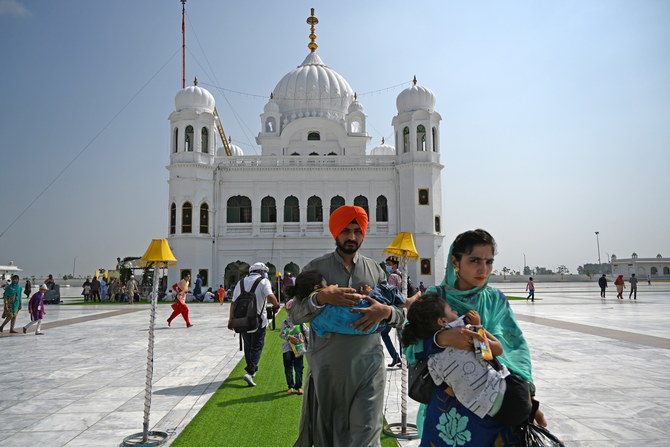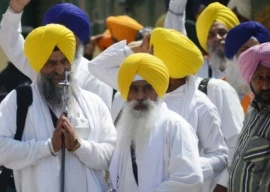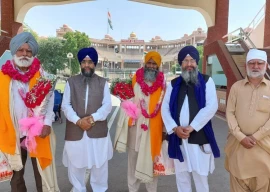
Despite various pluralistic laws that have been coined and enacted in the last few years, the bureaucratic procedures around marriage still remain a tricky terrain to navigate for anyone outside the ambit of Pakistan’s cisgender Muslim majority.
This narrative also appears particularly true for the Sikh Marriage Act that was passed by the Punjab Assembly in 2018 but is yet to see any effective implementation.
Parliamentary Committee on Human Rights Secretary Sardar Mahinderpal Singh, who is also a former member of the provincial assembly believes that the law was shelved due to technical errors in the bill’s draft. These errors, he revealed, included misspellings of the names of Guru Sahibs, absence of eligibility criteria for granthis who officiate Sikh marriages, and absence of provisions for divorces.
“The bill was to be presented to the provincial cabinet for re-approval after removing the said objections but the Pakistan Tehreek-e-Insaaf (PTI) government was removed via the no-trust motion last month,” he told this reporter.
However, according to Pakistan Muslim League Nawaz (PML-N) MPA Sardar Ramesh Singh Arora, who introduced the bill in the assembly some four years ago, the only reason for the delay in legislation was the incompetence of the then incumbent PTI government.
Read First public school for Peshawar Sikhs nears completion
“Now that the PML-N government has returned to power once again, the bill will be passed as soon as the provincial cabinet is formed,” he claimed, adding that the Sikh Marriage Act is a landmark law produced by Pakistan, considering even India, despite hosting the largest Sikh population anywhere in the world, still relies on the Hindu Marriage Act to register Sikh Marriages.
Arora, who regrets the actions of the previous government, said that had things gone as planned, the enactment of this law would have been followed by the Department of Human Rights and Minority Affairs preparing its Rules of Business, “the draft for which was also handed over to the concerned department at that time but the process later fell into a limbo of PTI’s creation,” he maintained.
Meanwhile, PTI lawmaker Sardar Mahinderpal Singh, justifying his government’s operations said that even though the act was passed by the Punjab Assembly in 2018, concerned stakeholders including Sri Akal Takht Sahib and Sikh organisations from all over the world had raised various objections about the bill, leading to its reconsideration.
“One of the objections was related to missing titles of Sikh religious leaders in the draft law. Just as Muslims include a certain title for their prophets such as Peace Be Upon Him, Sikhs also use titles after the names of their religious leaders. In addition to that, we had been to realise that every granthi cannot officiate a Sikh marriage— something the original bill did not take into consideration. That had to be amended so that the sole authority for marriage shall be the granthi appointed by the Federal Government on the recommendation of the Pakistan Sikh Gurdwara Prabandhak Committee,” informed Mahinderpal Singh.
Another issue highlighted in the original bill was its provision for divorce. Per Mahinderpal Singh, there is no concept of direct divorce in Sikhism, and no Sikh couple is reported to have filed for an annulment of marriage in the past. “To address this conflict, an amendment was introduced as per which cases of Sikh couples seeking annulment of marriage were to be referred to designated Sikh leaders forming part of Amarat Dhari Paanch Pyare. In their way, they would first try to reconcile the parents of both the wife and husband and upon failure of reconciliation between the two parties, will be empowered to announce their divorce,” he said, reiterating that all highlighted issues have been resolved by his party.
However, while the two rival political parties continue to play the blame game, Punjab’s small but significant Sikh population, like other minorities, is yet to enjoy the fruits of Pakistan’s pluralistic laws beyond their routine harbingering on paper.
Published in The Express Tribune, June 13th, 2022.






1731929357-0/Express-Tribune-(6)1731929357-0-270x192.webp)















COMMENTS
Comments are moderated and generally will be posted if they are on-topic and not abusive.
For more information, please see our Comments FAQ